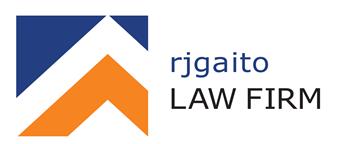Lawyers
Countries Covered
Practice Areas
Global Law Experts top search results to tackle law in Luxembourg: Tailored solutions for every legal challenge. Let experienced lawyers guide you through legal disputes and challenges with law insights and expertise knowledge. Our members hold proven strategies and solutions for every complex legal need.
























No results available Reset filters?
Stay informed with comprehensive global Luxembourg law news, authored by a team of professional lawyers and curated by the esteemed Global Law Experts team. Explore updates from diverse practice areas and legal domains, offering valuable insights into the latest developments worldwide.
posted 6 months ago
No results available Reset filters?
 Best Lawyers in Luxembourg
Best Lawyers in LuxembourgGlobal Law Experts presents the best lawyers in Luxembourg, a leading European hub for finance, investment funds, banking, and cross-border business. The country’s strong regulatory framework and global financial influence require top-tier legal advisors with deep expertise in corporate law, tax, investment structuring, mergers and acquisitions, and dispute resolution. The best lawyers in Luxembourg deliver tailored advice to multinational corporations, financial institutions, and private clients, ensuring compliance and protecting interests in a complex legal environment. Through Global Law Experts, clients gain access to highly regarded practitioners who combine local knowledge with international experience, offering strategic, efficient, and innovative solutions to meet both business and personal legal needs in Luxembourg and beyond.
Every GLE member is independently vetted by practice area and jurisdiction.
Yes, non-residents can set up a company in Luxembourg. The most common form is an SARL (private limited company), requiring at least €12,000 share capital. Incorporation must be done before a notary, and a registered office in Luxembourg is mandatory. Non-residents often appoint a local director or service provider to meet management and compliance requirements.
In Luxembourg, foreigners are taxed on Luxembourg-source income unless considered tax residents. Residents (staying >183 days or with primary home there) pay tax on worldwide income, while non-residents pay only on Luxembourg income. Progressive rates apply up to ~45%, with classes based on marital/family status. Non-residents earning most income in Luxembourg may opt for resident tax treatment.
In Luxembourg, residence permit requirements depend on purpose (work, study, family reunification, investment). Applicants need a valid passport, proof of income or job offer, health insurance, clean criminal record, and suitable housing. Non-EU nationals must secure a temporary visa before arrival, then apply for the permit within 3 months. EU/EEA citizens register locally without prior visa.
In Luxembourg, employment contracts must be in writing and detail job title, duties, salary, working hours, leave entitlements, probation (max 12 months), and notice periods. Contracts may be fixed-term or indefinite, with fixed-term requiring justification and renewal limits. They must comply with labor laws on minimum wage, collective agreements, social security, and employee protection.
In Luxembourg, disputes can be resolved through litigation in civil or commercial courts, arbitration for private, often international matters, and mediation, encouraged in civil, family, and commercial cases to promote settlement. Arbitration offers confidentiality and enforceability, while mediation is faster and cost-effective. Courts remain the default forum, but ADR is increasingly promoted.
Key legal considerations for forming a joint venture in Luxembourg include choosing the right structure (often SARL or SA), drafting a detailed joint venture agreement on governance, profit-sharing, and exit rights, ensuring compliance with corporate, tax, and competition laws, securing regulatory approvals if in finance, and addressing dispute resolution, confidentiality, and minority shareholder protections.
Luxembourg regulates corporate finance through the CSSF (Commission de Surveillance du Secteur Financier), which oversees banks, investment firms, and securities markets. Transactions must comply with EU directives (MiFID II, Prospectus, AML rules), disclosure obligations, and corporate law. Companies must ensure transparency, proper authorization, and reporting, with strict rules on insider trading and market abuse.
Luxembourg is popular for private equity funds due to its flexible fund structures (SICAR, SIF, RAIF), EU passporting rights, favorable yet compliant tax regime, and strong regulatory framework under the CSSF. It offers investor protection, treaty access, and efficient cross-border structuring. Combined with political stability, skilled professionals, and alignment with EU law, it is a top fund hub.
Many international companies base in Luxembourg for its favorable tax regime, EU single market access, extensive double-tax treaties, and stable legal system. Flexible corporate structures, efficient holding company rules, and skilled multilingual workforce add to its appeal. Strong financial regulation, investor protection, and political stability make Luxembourg a prime hub for cross-border business and finance.
To set up a company in Luxembourg (S.A. or S.à r.l.), founders must draft articles of association, deposit minimum share capital (€12,000 for S.à r.l., €30,000 for S.A.), and sign before a notary. A Luxembourg registered office is required, plus registration with the Trade and Companies Register and tax authorities. Business permits and compliance with AML/KYC rules may also apply.
A foreigner can obtain residency in Luxembourg by securing a purpose-based residence permit (work, business, study, or family reunification). Non-EU nationals must apply for temporary authorization before entry, show a valid passport, proof of income or job, health insurance, housing, and a clean criminal record. After arrival, they must register locally within 3 days and apply for the residence card.
Global Law Experts is dedicated to providing exceptional legal services to clients around the world. With a vast network of highly skilled and experienced lawyers, we are committed to delivering innovative and tailored solutions to meet the diverse needs of our clients in various jurisdictions.

Thinking of buying property in Brazil? Start with a full legal safety net.
✔️ Check title and ownership history
✔️ Verify no debts or disputes
✔️ Confirm zoning and permits.
#BrazilProperty #RealEstateInvesting #LegalDueDiligence #ForeignInvestment #PropertyLaw #GlobalRealEstate #InvestmentRisk #BrazilLaw

When your international business faces financial distress, quick action is key! 🔑 Negotiating with creditors, restructuring debt, and understanding insolvency laws can help regain stability. Global Law Experts is here to guide you through your options.
🌍Explore the details on our website.
🔗Link in bio
#GlobalLawExperts #CommercialLaw #BusinessLaw #LegalAdvice #BusinessGrowth #LegalTips #BusinessStrategy #LegalCompliance #Law #LegalKnowledge #LegalAwareness #Law101 #LegalEducation #IntellectualProperty

Thinking of buying property in Brazil? Don’t stop at the contract or key handover. Make sure the title is officially registered before calling it yours.
#BrazilRealEstate #PropertyLaw #GlobalInvestment #ForeignInvestors #LegalTips #DueDiligence #RealEstateRegistration #SecureInvestment

Getting a termination notice right now? Know your rights. Valid reason, fair process, proper notice they matter. Don’t let a bad dismissal walk away without accountability.
#EmploymentLaw #WorkerRights #Termination #LaborLaw #FairDismissal #WorkplaceJustice #LegalAwareness #GlobalWorkforce

Running a business is hard enough — lawsuits shouldn’t make it harder. 🚫 Protect your business with the right legal strategies and expert tools from Global Law Experts. Let’s secure your future together! 💼
🌍Explore the details on our website.
➡️www.globallawexperts.com
#GlobalLawExperts #CommercialLaw #BusinessLaw #LegalAdvice #BusinessGrowth #LegalTips #BusinessStrategy #LegalCompliance #Law #LegalKnowledge #LegalAwareness #Law101 #LegalEducation #IntellectualProperty #Infringed #Ecommerce #LegalBranding
Global Law Experts is dedicated to providing exceptional legal services to clients around the world. With a vast network of highly skilled and experienced lawyers, we are committed to delivering innovative and tailored solutions to meet the diverse needs of our clients in various jurisdictions.

Thinking of buying property in Brazil? Start with a full legal safety net.
✔️ Check title and ownership history
✔️ Verify no debts or disputes
✔️ Confirm zoning and permits.
#BrazilProperty #RealEstateInvesting #LegalDueDiligence #ForeignInvestment #PropertyLaw #GlobalRealEstate #InvestmentRisk #BrazilLaw

When your international business faces financial distress, quick action is key! 🔑 Negotiating with creditors, restructuring debt, and understanding insolvency laws can help regain stability. Global Law Experts is here to guide you through your options.
🌍Explore the details on our website.
🔗Link in bio
#GlobalLawExperts #CommercialLaw #BusinessLaw #LegalAdvice #BusinessGrowth #LegalTips #BusinessStrategy #LegalCompliance #Law #LegalKnowledge #LegalAwareness #Law101 #LegalEducation #IntellectualProperty

Thinking of buying property in Brazil? Don’t stop at the contract or key handover. Make sure the title is officially registered before calling it yours.
#BrazilRealEstate #PropertyLaw #GlobalInvestment #ForeignInvestors #LegalTips #DueDiligence #RealEstateRegistration #SecureInvestment

Getting a termination notice right now? Know your rights. Valid reason, fair process, proper notice they matter. Don’t let a bad dismissal walk away without accountability.
#EmploymentLaw #WorkerRights #Termination #LaborLaw #FairDismissal #WorkplaceJustice #LegalAwareness #GlobalWorkforce

Running a business is hard enough — lawsuits shouldn’t make it harder. 🚫 Protect your business with the right legal strategies and expert tools from Global Law Experts. Let’s secure your future together! 💼
🌍Explore the details on our website.
➡️www.globallawexperts.com
#GlobalLawExperts #CommercialLaw #BusinessLaw #LegalAdvice #BusinessGrowth #LegalTips #BusinessStrategy #LegalCompliance #Law #LegalKnowledge #LegalAwareness #Law101 #LegalEducation #IntellectualProperty #Infringed #Ecommerce #LegalBranding

Send welcome message